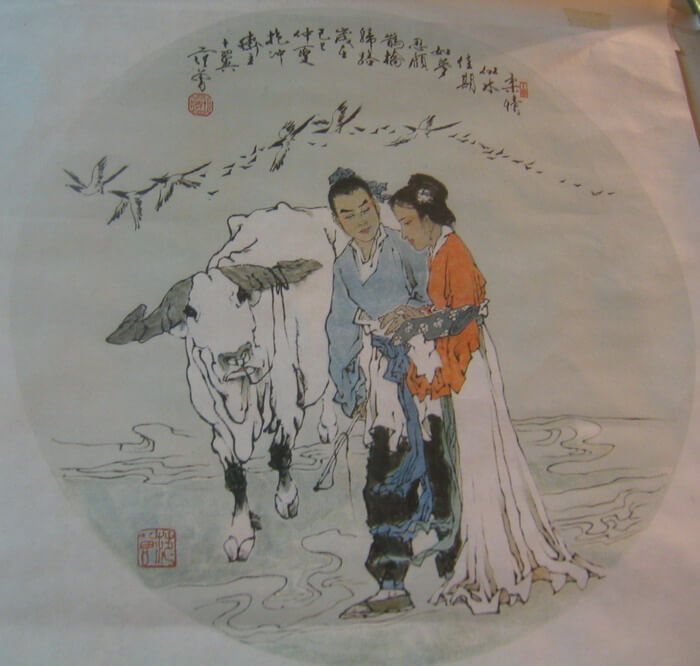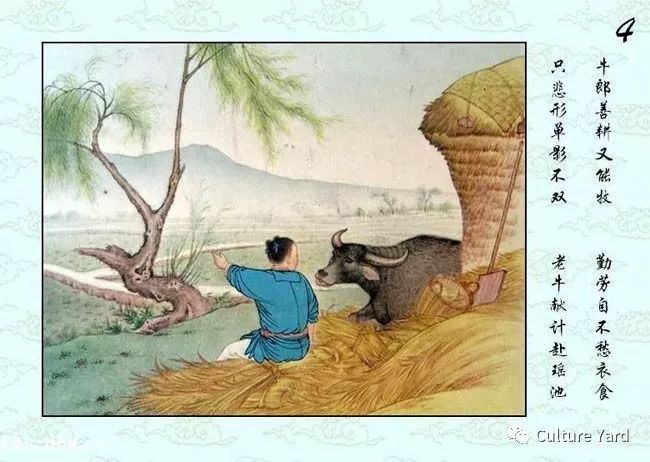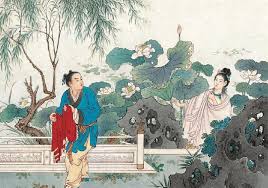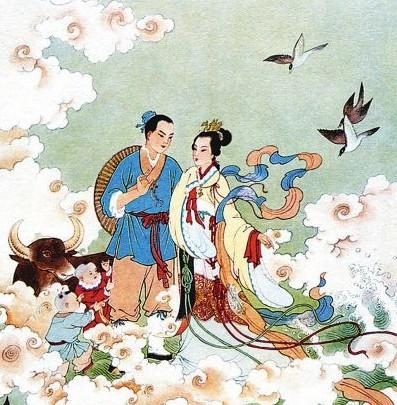Chinese Valentine's Day (2024): The Legend of Qīxī Jié
August 04, 2022
Celebrated since the Han Dynasty, Qixi Jie is arguably the most popular day for Chinese couples to celebrate their love.
If you don’t know what this romantic Chinese holiday is about, keep reading to learn what the Qixi festival is, the origins of the Qixi festival and why Chinese people celebrate it, how it is celebrated, some common Chinese phrases for the Qixi festival, and more.
What is Qīxī jié?
How do Chinese people celebrate Qīxī jié?
Why do Chinese people celebrate Chinese Valentine's Day | Qīxī Festival Story
Useful Phrases for Qīxī jié
Do Chinese people celebrate Valentine's day (the Western one)?
How many Valentine's days are celebrated in China?
What is Qīxī jié?
Qīxī jié is one of several Chinese Valentine's Days. It typically falls sometime in late July or early August, on the seventh day of the seventh lunar month each year.
七夕节 Qīxī jié is alternatively known as the Double Seven Festival or the Seventh Night Festival. So many 7's!
This holiday of doubles should not be confused with the Double Fifth Festival, the Double Ninth Festival, or the Double Eleven Festival.
This year, Qīxī jié falls on August 10th, 2024.

How do Chinese people celebrate Qīxī jié?
Nowadays, couples in China will celebrate Qīxì jié like any other Valentine's day with gifts, a nice dinner, spending time together, etc.

More traditional ways to celebrate Chinese Valentine's Day include baking (and eating!) a pastry called 巧果 qiǎoguǒ. 巧 qiǎo means "skill", but it sounds very similar to 桥 qiáo, which means "bridge". Keep reading to find out why bridges are important to Qīxī jié!
Other traditional ways to celebrate the holiday include threading a needle under the moonlight in honor of the goddess Zhīnǚ, worshipping Zhīnǚ by leaving an offering of fruits, nuts, teas, or wines, and haning garlands of flowers on the horns of oxen.
Confused? The next section will explain everything!
Why do Chinese people celebrate Chinese Valentine's Day | Qīxī Festival Story
This touching holiday finds its origins in the legend of the Cowherd and the Weaver Girl.
Long ago in a distant land lived a poor cowherd (牛郎 niúláng). He was an orphan, and spent his life in solitude, save for his loyal ox, who he raised from a calf. Niúláng was lonely, but he could always confide in his ox.
One day, seeing how lonely his master was, the ox began to speak.
“Master,” he began, “I am not just a lowly ox. I am the star Taurus, banished by Heaven to live on earth. I see you are alone, and it brings me great sadness. You have treated me well, so I will help you.”

“Nearby there is a sacred pond where the goddesses bathe. The most beautiful goddess of all, Zhīnǚ, will be there today. If you hide her clothes, she will stay on earth and be your bride.”
“Zhīnǚ the Weaver? The granddaughter of the Jade Emperor?” Niúláng exclaimed. The ox nodded. Zhīnǚ’s beauty was as famous as her reputation for needlework.

Hardly daring to believe the ox, Niúláng ran to the pond. As soon as the goddesses arrived, Niúláng did as Taurus said. Accidentally, he rustled a bush.
While the other goddesses fled, Zhīnǚ searched for her clothes but could not find them.
Niúláng took pity on her, brought Zhīnǚ her dress. Their eyes met. Suddenly, the world faded into the background and everything stopped. Niúláng and Zhīnǚ were in love.

Years later, Niúláng and Zhīnǚ had twins and had settled happily into family life. However, not all was well. One day, Taurus called Niúláng to him.
“My mortal body is dying,” the ox coughed. “When I am gone, make a cloak of my skin. It gives man the power to ascend to Heaven.”
Niúláng was grieved at Taurus’ passing, but did as his old friend instructed. The family continued in peace for a time, but it was not to last.
The Jade Emperor missed his granddaughter greatly and searched for her far and wide. Finally, he found her living with Niúláng, a mortal. His rage consumed him.

“Bring her back,” the Jade Emperor commanded the Empress of Heaven.
Upon returning home that evening, Niúláng found his children sobbing that an old lady took their mother away. Niúláng knew instantly what had happened and wasted no time. He set his children in baskets over his shoulders, uncovered the ox’s hide, and ascended to Heaven to find his true love.
The Empress looked back and saw Niúláng pursuing her. Infuriated, she pulled out her hairpin and slashed open the sky. A mighty river erupted from the gash.
“No!” Zhīnǚ screamed. She wept bitterly at the sight of her husband and children on the far river bank, unable to cross.

The Jade Emperor saw his granddaughter’s tears and was deeply moved. Though it was not proper for a goddess to live on earth, nor for a mortal to dwell in Heaven, the Jade Emperor was compassionate and commanded a flock of magpies to form a bridge once a year. On the seventh day of the seventh month, the lovers could reunite across the silvery river to share a single day of happiness.
Some say that the Cowherd and the Weaver Girl faded away from grief, leaving only their souls in the form of stars. Niúláng is the star Altair and Zhīnǚ is the star Vega, separated by the Milky Way. Meanwhile, the star Taurus shines nearby, continuing to watch over his faithful friend the cowherd.

Useful Phrases for Qīxī jié
七夕节快乐!
Qīxī jié kuàilè!
Happy Valentine's Day!
你七夕节打算做什么?
Nǐ qīxī jié dǎsuàn zuò shénme?
What are your plans for Valentine's Day?
你愿意跟我共度七夕吗?
Nǐ yuànyì gēn wǒ gòngdù qīxī ma?
Would you like to spend Valentine's Day with me?
Do Chinese people celebrate Valentine's day (the Western one)?
Yes. It is common to celebrate Western Valentine's Day in China in addition to the Qixi festival and many other traditional Chinese Valentine's Days, especially among the younger generation. Just like in other countries, Chinese couples also go on dates and exchange gifts on February 14 to celebrate the holiday.
How many Valentine's Days are celebrated in China?
Technically, Valentine's Day is celebrated 6 times in China, in addition to the Western Valentine's Day:
- on Qixi Festival which we discuss in this article,
- on March 14 (White Valentine's Day),
- on May 20, better known as 520 wŭ èr líng, just like the Chinese internet slang
- on Chinese Single's day, on November 11
- during the Lantern festival, on the 15th day of 1st lunar month
- during Shangsi or the Double Third festival, on the 3rd day of 3rd lunar month
As you can see, Chinese people never miss an opportunity to have a romantic day filled with love and gifts. "Why do the Chinese have so many Valentine's Days?" you ask. Because in the past, young people did not have many occasions to meet the opposite sex, and these holidays became the perfect occasion to find a partner and go on romantic dates.
Haven't found that special someone yet? Try your luck with these 8 most popular dating apps in China.
About the Author
Eden has been learning Chinese since 2008. She fell in love with the language, food, and culture and never looked back! Eden lived in China for six years, including in Harbin, Beijing, and Dali.
